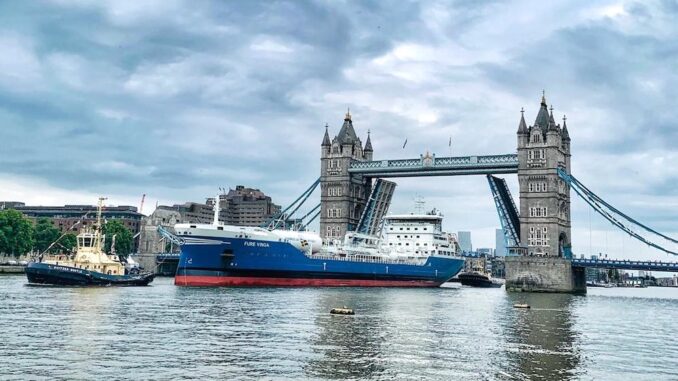
The hundreds of events across the British capital that made up London International Shipping Week have served as a sounding board over the past few days for backers and opponents of the International Maritime Organization’s Net Zero Framework, due for a vote next month. The debate dominated headlines and dialogue in London, with adoption of the far-reaching green legislation now plunged into doubt.
The uncertainty surrounding the green vote comes just as the Maritime Just Transition Task Force (MJTTF) released industry-first training frameworks designed to facilitate the development of training programmes for seafarers for working on ships powered by ammonia, methanol and hydrogen. The MJTTF was formed at COP26 four years ago by the International Chamber of Shipping (ICS), the International Transport Workers’ Federation (ITF), the United Nations Global Compact, the International Labour Organization (ILO), and the International Maritime Organization (IMO). The important training materials were made publicly available this week.
While this proactive measure was welcomed, the shipping sector was found to be still off track to meet its climate target of having at least 5-10% of the fuel used in international shipping come from scalable zero-emission sources by 2030, according to a new progress report which found that although technology is advancing, weak demand signals and stalled finance are risking delaying the transition and negatively impacting future supply.
Finally, two standout reads from this week’s selection of Splash reporting.
Denis Morais, the head of Canadian shipbuilding software specialist SSI was this week’s big Maritime CEO interview, while Gian Enzo Duci, managing director of Oceanly, penned a Contribution on when to buy into maritime tech, in which he noted: “Today’s fascination with dual-fuel vessels and alternative fuels highlights the risk of premature adoption. These projects, often pursued by wealthy owners, rarely optimise costs or deliver quick returns. Upfront costs are steep, regulations fluid, and infrastructure is uncertain. As a result, the benefits are aspirational, not guaranteed.”
For a deep dive into the opposing factions surrounding the IMO’s Net Zero Framework, check out the latest episode of the Splash Wrap podcast below.






Be the first to comment